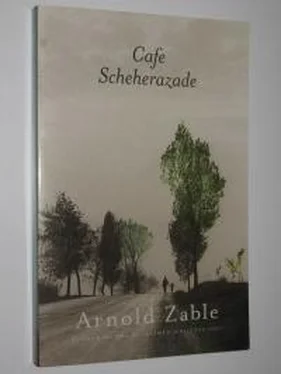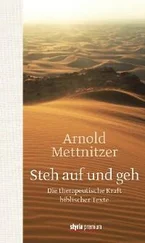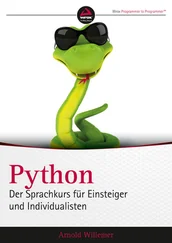Arnold Zable - Cafe Scheherazade
Здесь есть возможность читать онлайн «Arnold Zable - Cafe Scheherazade» весь текст электронной книги совершенно бесплатно (целиком полную версию без сокращений). В некоторых случаях можно слушать аудио, скачать через торрент в формате fb2 и присутствует краткое содержание. Город: Melbourne, Год выпуска: 2001, Издательство: Text Publishing Company, Жанр: Проза, на английском языке. Описание произведения, (предисловие) а так же отзывы посетителей доступны на портале библиотеки ЛибКат.
- Название:Cafe Scheherazade
- Автор:
- Издательство:Text Publishing Company
- Жанр:
- Год:2001
- Город:Melbourne
- ISBN:нет данных
- Рейтинг книги:4 / 5. Голосов: 1
-
Избранное:Добавить в избранное
- Отзывы:
-
Ваша оценка:
- 80
- 1
- 2
- 3
- 4
- 5
Cafe Scheherazade: краткое содержание, описание и аннотация
Предлагаем к чтению аннотацию, описание, краткое содержание или предисловие (зависит от того, что написал сам автор книги «Cafe Scheherazade»). Если вы не нашли необходимую информацию о книге — напишите в комментариях, мы постараемся отыскать её.
Cafe Scheherazade — читать онлайн бесплатно полную книгу (весь текст) целиком
Ниже представлен текст книги, разбитый по страницам. Система сохранения места последней прочитанной страницы, позволяет с удобством читать онлайн бесплатно книгу «Cafe Scheherazade», без необходимости каждый раз заново искать на чём Вы остановились. Поставьте закладку, и сможете в любой момент перейти на страницу, на которой закончили чтение.
Интервал:
Закладка:
In spring the rivers broke loose. Rafts of ice, uprooted trees, dismembered branches, careered downstream. The conifers oozed resinous ambers and blood reds. The scent of the sap was intoxicating. Like a darkroom print coming into focus, the earth emerged in full colour. Quilts of leaves shook free from melting snows. Crimson berries that had lain beneath the snow all winter appeared underfoot, radiant against a translucent white.
Days earlier the workers had separated into two bands at the banks of a stream. Laizer had moved on with an advance party to build the huts, and prepare the way. They waded through swamps and marshes. Water soaked their bark-plaited shoes. A week later, in heavy rains, they ran out of rations. They retraced their way to the stream and, as they drew near, they saw it had broken its banks. The stream was now a kilometre in width.
The work party lashed some logs together. They launched 79 their primitive craft upon the river and guided it with wooden poles. Just as they were about to touch the other side, the raft crashed into an uprooted tree borne downstream by the accelerating currents.
The raft capsized. When Laizer rose to the water's surface he glimpsed a log floating by. He grabbed it, sank his axe into the log and used it as a hook to lever himself out of the swirling currents. His companions, who had swum ashore, ran along the embankment shouting instructions. When he came within reach they grabbed the log and dragged Laizer back onto solid earth.
Yes, it was a time of taunting beauty, those twenty months upon the Vizir. Each season had its allure, and its dangers. The summers were all the more glorious for being brief. The sun barely sank below the horizon before it rose again into a sky that had retained its glow. It was then that the flowers appeared, their fleeting lives compensated for by the intensity of their colour and fragrance. But, again, the beauty mocked them; summer was the season of plagues and hard labour. Mobs of mosquitoes swarmed about them as Laizer and his companions made up for lost time.
Seventeen hours a day they slaved on the towers, assembling each floor with infinite care, storey by storey, from its ten-metre base, to a sixth-level summit, two metres square; and in their rare spare moments, to appease their hunger, they trapped rabbits and arctic foxes; and reeled in fish and water fowl.
They also feasted on the glukhar, a large bird that they prized
80 for its ample flesh, and the ease with which it could be trapped, because it was believed to be deaf. They cleaned the bird and discarded the entrails at the periphery of the camp. Just after sunrise a member of the brigade stepped out of his hut into the path of a bear. It had been lured into the camp by the scent of the bird's remains. The worker ran back to the hut to rouse his companions.
"Grab pots and pans. Grab whatever you can," advised the more experienced forest workers. They ran out screaming, pounding their makeshift drums. They stamped their feet on the ground.
They waved their arms like windmills caught in a gale. The bear raised its head and lumbered away. This is what struck Laizer, the bear's composure. It did not run. It merely turned and strolled away.
Just as unobtrusively, summer gave way to autumn. Mushrooms littered the earth. The undergrowth was a mess of lichens and rotting leaves. Laizer inhaled the cool aroma of damp foliage and decay. But there was little time to savour it. Ice-edged winds were a reminder, the forward scouts of impending gloom. The first frosts spread their veils over the forest floor. Laizer and his companions worked against time.
Their most important autumn task was to fell trees, the keys to their survival. They provided fuel, timber for their log huts, and the building blocks for the towers. The men worked in pairs upon each tree, eight men to four trees. The first snows had begun to fall. Three of the trees tumbled towards the river over an incline, as planned. The fourth remained standing. 81
Laizer approached it, struck an axe into the split, and levered the gap as he had been taught to do. His partner, a Ukrainian, stood behind him grasping a pole, at the ready, to push the tree on its way.
Instead of falling towards the river the tree slipped off its cut and toppled backwards; at first slowly, mesmerising its assailants with its deceptive speed. Laizer was struck in the chest. His partner received a direct blow to the head and was instantly killed. Laizer was saved by the snow that cushioned his fall. He lay in bed for eight days, unable to move, and emerged condemned to feel the pain, every day, for the rest of his life.
As for their second winter, it was the time to take stock. To hibernate, and prepare for the return of the light. When the night was clear the brigade worked by the glow of the moon. Frost clung to their faces. Each breath was bloated with snow.
Perspiration turned to ice. They laboured in silence, broken only by a snatch of song, an anecdote. Or they discussed the exploits of their most loved workmate, Dobynda the Gypsy.
"We all loved him, that no-good bastard. He was not afraid. He spoke the truth in his half-smiling and half-cynical way. He knew how to control his laughter, when he had to. It was the laughter of a man with lizards in his guts. When our overseers hurled mud at him, it would never stick. Nothing could touch him. He did float through each day without a care.
"`Hey Dobynda, you are idling; work harder,` the foreman once warned.
82
"`Why should I work harder,` Dobynda replied, `when you measure the soil with spades and the food with spoons? Now, if you would measure the food with spades and the soil with spoons, then I'd work faster than the devil.`"
Laizer laughs. Sips his coffee. Stirs in another sugar.
"Because of Dobynda I once ate more food in a day than I would eat for an entire month. He awoke me late at night. `Come,` he said. `It is Easter. Christ is rising. I can tell by the size of the moon. We should take advantage of his resurrection, his rebirth.`
"We did steal out and make our way to the nearest village, fifteen kilometres away, by the light of the rising moon. We reached the village in the early morning. We knocked on every door and repeated the magic words: Christos Voskres. Christ has risen. And each villager, no matter how poor, gave us some fooda slice of black bread, a potato, a cucumber, a hard-boiled egg.
"We left the village with our sacks full. We sat in the forest and filled our bellies until they ached. Never were two atheists so grateful for the rising of Christ as we were on that Easter day."
Laizer lapses into silence. The smile fades. His eyes are drained. The spell has broken. We are the last two diners left in the cafe. Our plates are strewn with crumpled napkins, our coffee cups down to the dregs. The tables are littered with ashtrays full of blackened butts. The night manager is checking the books, the waitresses are stacking the chairs, dimming the lights.
83
"_Genug. Enough of these grandmother's tales," quips Laizen
"Besides, you no-good bastard, you idle scribbler, you should have enough stories now for an entire encyclopaedia of the world's follies and woes."
Laizer has come to know this fragment of bayside suburb well. He has lived here longer now than any other place he has ever been; and its lack of symmetry suits him. The streets do not run to a simple grid. The sea does not allow it. The foreshore bends to the bay. The Esplanade curves with the coastline. The thoroughfares are interwoven like lace.
The sea has darned the lace; pulled it into its natural shapes.
Only later did the town-planners come and impose their own more rigid order as best they could. They followed the contours of their minds' eyes, which were guided by the cities of their youth. Later still came the new immigrants, from all corners of the earth. They recreated their remembrances, their cravings, their Scheherazades.
Читать дальшеИнтервал:
Закладка:
Похожие книги на «Cafe Scheherazade»
Представляем Вашему вниманию похожие книги на «Cafe Scheherazade» списком для выбора. Мы отобрали схожую по названию и смыслу литературу в надежде предоставить читателям больше вариантов отыскать новые, интересные, ещё непрочитанные произведения.
Обсуждение, отзывы о книге «Cafe Scheherazade» и просто собственные мнения читателей. Оставьте ваши комментарии, напишите, что Вы думаете о произведении, его смысле или главных героях. Укажите что конкретно понравилось, а что нет, и почему Вы так считаете.












